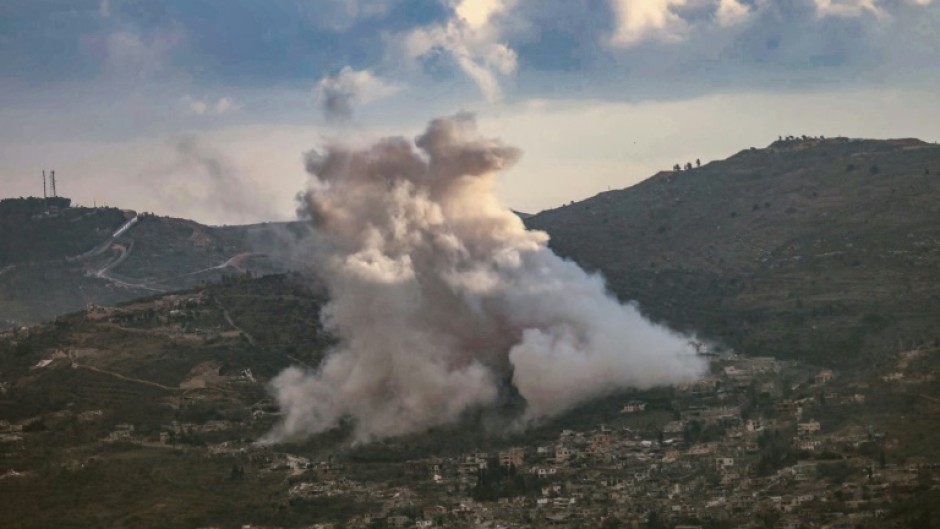The Lebanese army on Saturday said it was ready to deploy its forces in the country's south, accusing Israel of "procrastination" in its withdrawal in time for a deadline the following day.
Under the terms of the Israel-Hezbollah ceasefire that came into effect on November 27, the Lebanese army is to deploy alongside United Nations peacekeepers in the south as the Israeli army withdraws over a 60-day period that ends Sunday.
Hezbollah is to pull back its forces north of the Litani River about 30 kilometres from the border and dismantle any remaining military infrastructure in the south.
"There has been a delay at a number of stages as a result of the procrastination in the withdrawal from the Israeli enemy's side," the army said in a statement, confirming it was "ready to continue its deployment as soon as the Israeli enemy withdraws".
Israeli Prime Minister Benjamin Netanyahu's office on Friday said the military's withdrawal would continue beyond the Sunday deadline stipulated by the deal.
"The withdrawal process is conditional upon the Lebanese army deploying in southern Lebanon and fully and effectively enforcing the agreement, with Hezbollah withdrawing beyond the Litani River," a statement from Netanyahu's office said.
"Since the ceasefire agreement has not yet been fully enforced by the Lebanese state, the gradual withdrawal process will continue in full coordination with the United States."
The Lebanese army accusation came after UN Secretary-General Antonio Guterres on January 17 called for Israel to end its military operations and "occupation" in the south.
Lebanon's new President Joseph Aoun said one week ago that Israel must "withdraw from occupied territories in the south within the deadline set by the agreement reached on November 27".
Lebanon's army urged people to "be cautious in heading back to the southern border areas, due to the presence of mines and suspicious objects left behind" by Israeli forces.
The fragile truce took effect after two months of full-blown war between Israel and Iran-backed Hezbollah and has been marked by accusations of violations from both sides.
Hezbollah began a low-intensity exchange of fire in the wake of the October 7, 2023 attack by its Palestinian ally Hamas on Israel that triggered the war in Gaza.
Israel escalated its campaign against Hezbollah in September, launching a series of devastating blows against the group's leadership structure that saw its longtime chief Hassan Nasrallah killed in an air strike on Beirut that month.
Hezbollah on Thursday said that "any violation of the 60-day deadline will be considered a flagrant violation of (ceasefire) agreement, an infringement on Lebanese sovereignty and the occupation entering a new chapter".
This would require the Lebanese state to act using "all means necessary, to restore the land and wrest it from the clutches of the occupation", Hezbollah said in a statement.
A committee composed of Israeli, Lebanese, French and US delegates and a representative of UN peacekeeping force UNIFIL is tasked with ensuring any ceasefire violations are identified and dealt with.
The UN peacekeeping force has reported Israeli violations of the ceasefire terms.
Guterres also said peacekeepers had found more than 100 weapons caches belonging "to Hezbollah or other armed groups".
By Karim Abou Merhi

